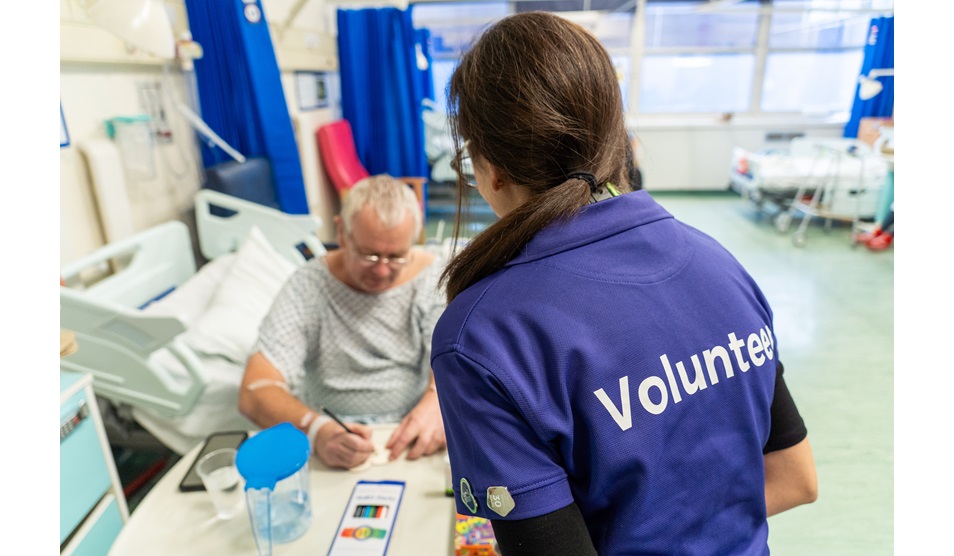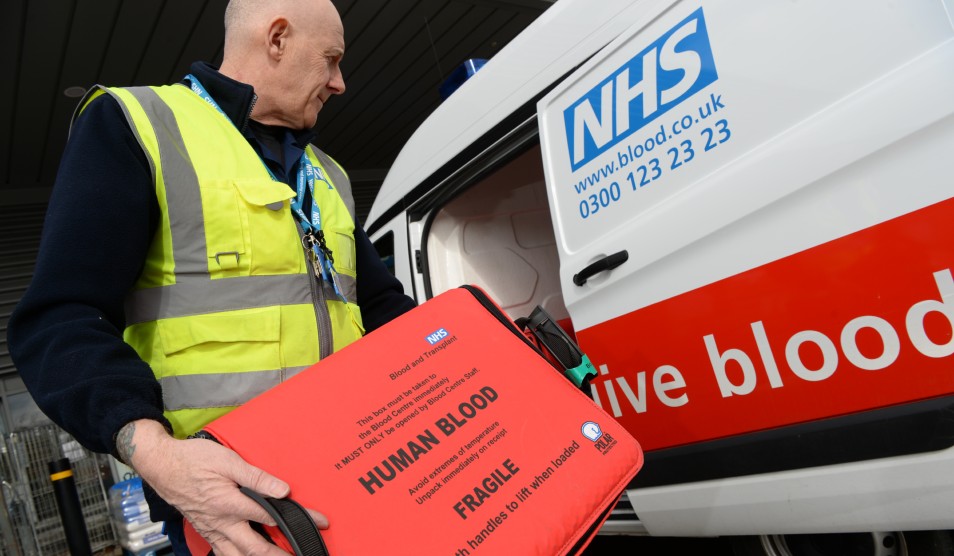Trust to support home testing programme that will help track coronavirus infection rates
The government has announced a new programme of home testing for coronavirus, which will be supported by Imperial College Healthcare NHS Trust and will track the progress and prevalence of the infection across England.
The programme, commissioned by the Department of Health and Social Care and led by colleagues at Imperial College London with Ipsos MORI, will have two phases. The first phase will see 100,000 people sent self-testing kits and will help to improve understanding of how many people are currently infected with the virus.
This part of the programme, known as the REal-time Assessment of Community Transmission (REACT-1) programme, begins now, with 100,000 randomly selected people from 315 local authorities across England, who will be invited to provide nose and throat swabs. The samples will be tested in the laboratory using the gold standard PCR (polymerase chain reaction) test, which detects the presence of genetic material from the virus. This kind of test looks for evidence that someone is currently infected with coronavirus and can not tell you about previous infections.
Honorary consultant surgeon at the Trust, Professor the Lord Darzi, FRS, who is also director of the institute of global health innovation and the sponsor of the programme at Imperial College London, said: “Short of a vaccine, testing is the only way out of lockdown. But the testing landscape is like the Wild West with no rules, no standards and widely varying reliability. Even the most accurate test is useless unless it is usable. With this ambitious programme, the biggest in England, we aim to establish a viable testing programme on which the government can rely.”
The second part of the programme (REACT-2) will see researchers start to investigate the accuracy and usability of at-home antibody testing so that this can be validated for wider use. Eventually, this could help to understand how many people have been infected and recovered since the outbreak began. It could also help identify those who may have some immunity to the virus.
Self-sampling is widely used in health care, for example in the management of diabetes and the diagnosis of HIV, but it has not yet been tested by members of the public for coronavirus testing.
Staff from the Trust who have recovered from coronavirus are invited to volunteer to help establish the accuracy of the antibody test initially. It will then be rolled out to wider samples of volunteers to test whether members of the public are able to easily undertake the tests themselves at home.
Professor Tim Orchard, Chief Executive at Imperial College Healthcare NHS Trust, said: “We are delighted to take part in this programme and contribute to efforts to improve COVID-19 antibody testing in the NHS and more widely across our communities. Community testing will be important in ongoing efforts to tackle the pandemic, potentially easing the burden on health workers and freeing up resources in our health system.”
Once the tests have been assessed for accuracy in the staff volunteers, three hundred public volunteers will then be given a sample test to self-administer. This requires them to place a finger prick of blood in a cassette, add a dye and read off the result and will help researchers to assess its acceptability and whether the volunteers understand the guidance on how it is to be used.
If the sample tests prove easy to use, they will then be distributed to a larger cohort of up to 10,000 people. The aim, at this stage, will be to ensure that people can properly and accurately self-administer the test and not to provide an accurate assessment of antibody levels.
If research shows that the test can be self-administered easily and accurately, the next stage will involve up to 5,000 key workers, who will both self-test and have the test administered by a health professional. These results will also be compared with the results of blood samples from participants tested in the laboratory. This stage will provide more detailed information about the accuracy of the tests.
If antibody self-testing is found to work through each of these different stages, and with a high degree of accuracy, acceptability and usability, it will be rolled out to 100,000 people later this year. It is hoped this can provide an indication of the prevalence of Covid-19 and possibly immunity based on the presence of coronavirus antibodies.
Health Minister Lord Bethell said: “Understanding more about the current spread of coronavirus and the prevalence of antibodies is a vital part of our ongoing response to this pandemic.
“This ambitious new testing programme will help us track the rate of the infection now. And, crucially, it will help identify an antibody test that is accurate and easy to use, and which can give us an indication of how many people have already had the infection. This information will inform the future action we take to manage the spread of the virus, including the development of new tests and treatments.”





